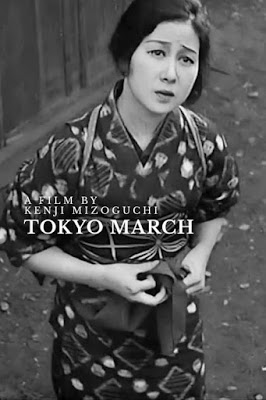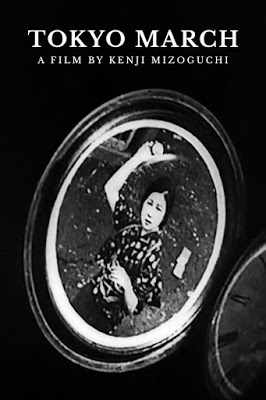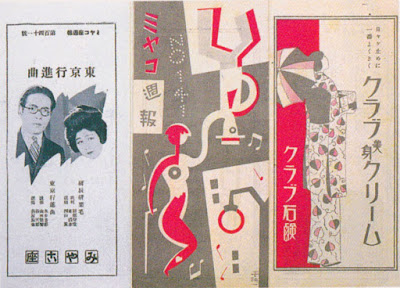Tokyo March

Year: 1929
Director: Kenji Mizoguchi
Rating: 7.0
Apparently, there is less than 30 minutes
remaining of this film that originally ran about 100 minutes. What is strange
is that this seeming fragment makes for a perfectly formed story from beginning
to end - so I would be very curious as to what is missing. This is from Kenji
Mizoguchi, who along with Kurosawa, Ozu and Naruse are considered the premiere
directors from the Classic Period of Japanese films - 1930 - 1960. By the
time of the making of this film Mizoguchi already had about fifty films to
his credit. It is a silent film but in the DVD presentation from Digital
Meme they include a narration from a benshi. As I mentioned in a previous
review, the Japanese silent films had a benshi narrating the film to the
audience - and as shown in this film it is more than just repeating the conversations
but giving explanations as well and even being poetic as it is here about
the city of Tokyo. Digital Meme has produced a series of ten dvds that they
label Talking Silents. Even perhaps more so in Japan than the USA, a huge
percentage of the silent films have been lost to fires, earthquakes and war
- an estimated 5% remain.

The benshi tells us of this melodrama that
certainly has a lot crammed into its short duration and enough coincidences
to play well in Bollywood. The female benshi does all the voices - deep when
a man and feminine when a woman. Michiyo ( Shizue Natsukawa, who much to
my amazement was in Okoma: The Orphan Gambler (1971) that I just saw) is
from a poor family. Her father left her famous geisha mother when she was
a baby and after her mother died she moved in with her uncle and aunt. When
the uncle loses his job Michiyo has to do the right thing and follow in her
mother's footsteps. But before this happens, a young man from a wealthy family
spots her and is instantly smitten. Imagine his surprise when he goes out
to celebrate with friends and sees her now as a geisha. Realize that true
geisha's were entertainers and servers for customers - not prostitutes -
but still not held in high regard by the upper crust of society.

More shocks and surprises are to come as
two friends vie for her love and an older man has his past catch up with
him. For what we have here it is quite good - you have to really approach
it as a short film that is a paean to Tokyo and to mixed up love. The DVD
begins with the great song Tokyo March though I have no idea if that was
sung when the film played in theaters - maybe the Benshi did that as well.



